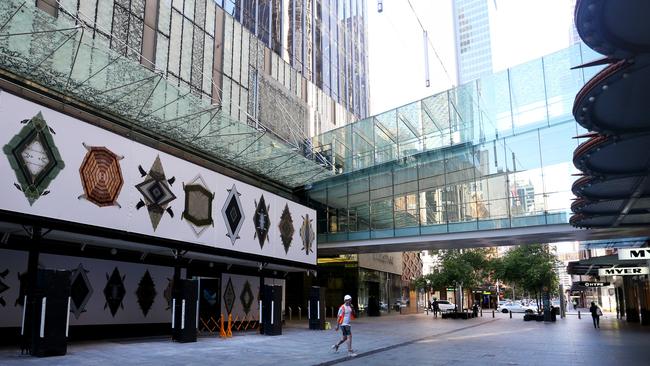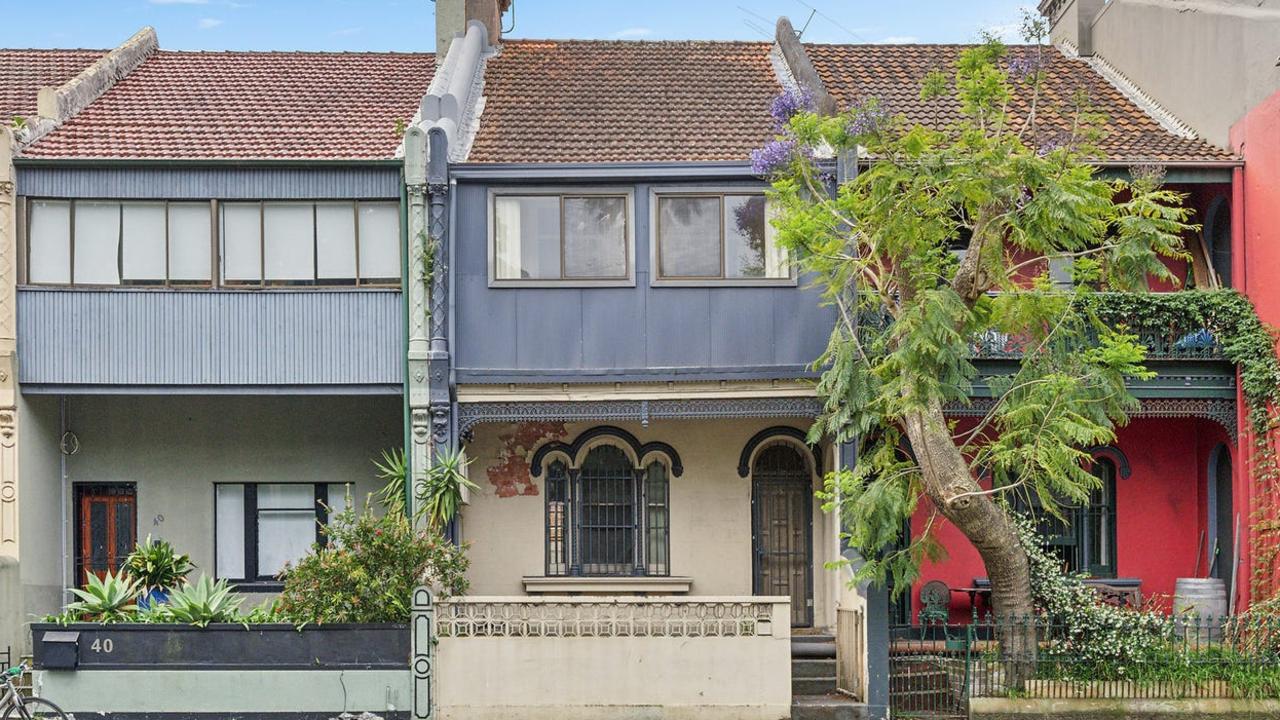Economy reopening points to strong consumer rebound
Investors may be underestimating a rebound in consumer spending when the economy reopens from Covid restrictions.

Business
Don't miss out on the headlines from Business. Followed categories will be added to My News.
Investors may be underestimating a rebound in consumer spending when the economy reopens from Covid restrictions and will seek clarity from corporate annual general meetings this month.
A UBS survey of 1000 people in late August and early September was even stronger than a similar survey in the June quarter survey despite strict lockdowns in NSW and Victoria.
Combined with resilient activity and labour market data, and less uncertainty on economic reopening, the consumer survey led UBS to upgrade its forecast for real consumption in 2022 to 4.1 per cent year on year – 0.5 per cent above consensus – while raising its GDP forecast to 3 per cent.
“Distinct to the first ‘reopen trade’, when high-income earners drove the bullish pivot in consumer intentions, in the September quarter, the lift is driven by middle and lower-income earners, to near their pre-Covid level,” UBS chief economist George Tharenou said.
The sharemarket remained vulnerable after retreating as much as 6 per cent from a record high in the past two months amid plunging iron ore prices and a pullback in global markets.
But increased confidence about a rapid economic rebound starting by year end may come as investors consider what to do with more than $40bn of dividends from the recent profit season.
The proceeds of takeovers and on-market share buybacks – $2bn from Woolworths and $6bn from CBA – and another round of dividend payments from other major banks next month will also add up.
Mr Tharenou said his survey showed consumers were “close to a turning point in shifting spending from goods to services” – good for some companies but bad for others – but a rise in fiscal support to exceed the lockdown cost of about $2bn a week caused a “positive income shock” for lower and middle-income households, and the house price boom reinvigorated goods spending intentions.
A tightening of macroprudential policy this week – the interest serviceability buffer rose to 3 per cent, from 2.5 per cent – reduced borrowing capacity, but only by a moderate 3-5 per cent, he said.
This would probably slow house prices, but Mr Tharenou expected a healthy 5-10 per cent rise next year. Importantly, he says it “keeps RBA rate hikes ‘off the agenda’, and investors should position for higher goods spending, especially housing-related, likely to benefit from positive wealth effects.
A significant rise in home purchase intentions, and still elevated home improvement intentions, supported his view that building commencements would “boom” to 220,000 in 2021 and 2022.
Based on the consumer survey, Mr Tharenou listed housing-related goods, mobility-sensitive, and ESG (environmental, social, governance) as his top three Australian stock themes.
Retailers expected to benefit included Harvey Norman, Adairs and Super Retail Group.
Adore Beauty and Wesfarmers were also favoured as online spending intentions rose. Increased household and electronic goods spending should favour Aventus and HomeCo REIT.
Mr Tharenou also noted a significant lift in international travel and car purchase intentions, while petrol and vehicle service spending intentions were among the most elevated.
His top mobility picks were Qantas, Corporate Travel Management, Webjet and SeaLink Travel. Ampol, Bapcor, Eagers and Carsales were favoured to capture a bias towards land-based travel.
More willingness to pay an “ESG premium” favoured Kathmandu and Origin Energy.
His negative list included companies facing lower groceries volumes such as Coles and Woolworths, shopping centre REITs like Scentre Group and Vicinity Centres, iron ore miners Fortescue and Rio Tinto and energy company AGL Energy.
Macquarie’s Australian equities strategist, Matthew Brooks, said the AGM season loomed as a “mini-reporting season” for the sharemarket.
Investors were willing to look through the negative impacts of the Covid lockdowns in the August reporting season. But with progress on vaccinations, the economy would start opening up this month and investors would want to know how quickly activity was recovering, he said.
“The other key issue is likely to be the impact of cost inflation and shortages, and whether companies are still able to pass on cost increases,” he said.
More Coverage
Originally published as Economy reopening points to strong consumer rebound





